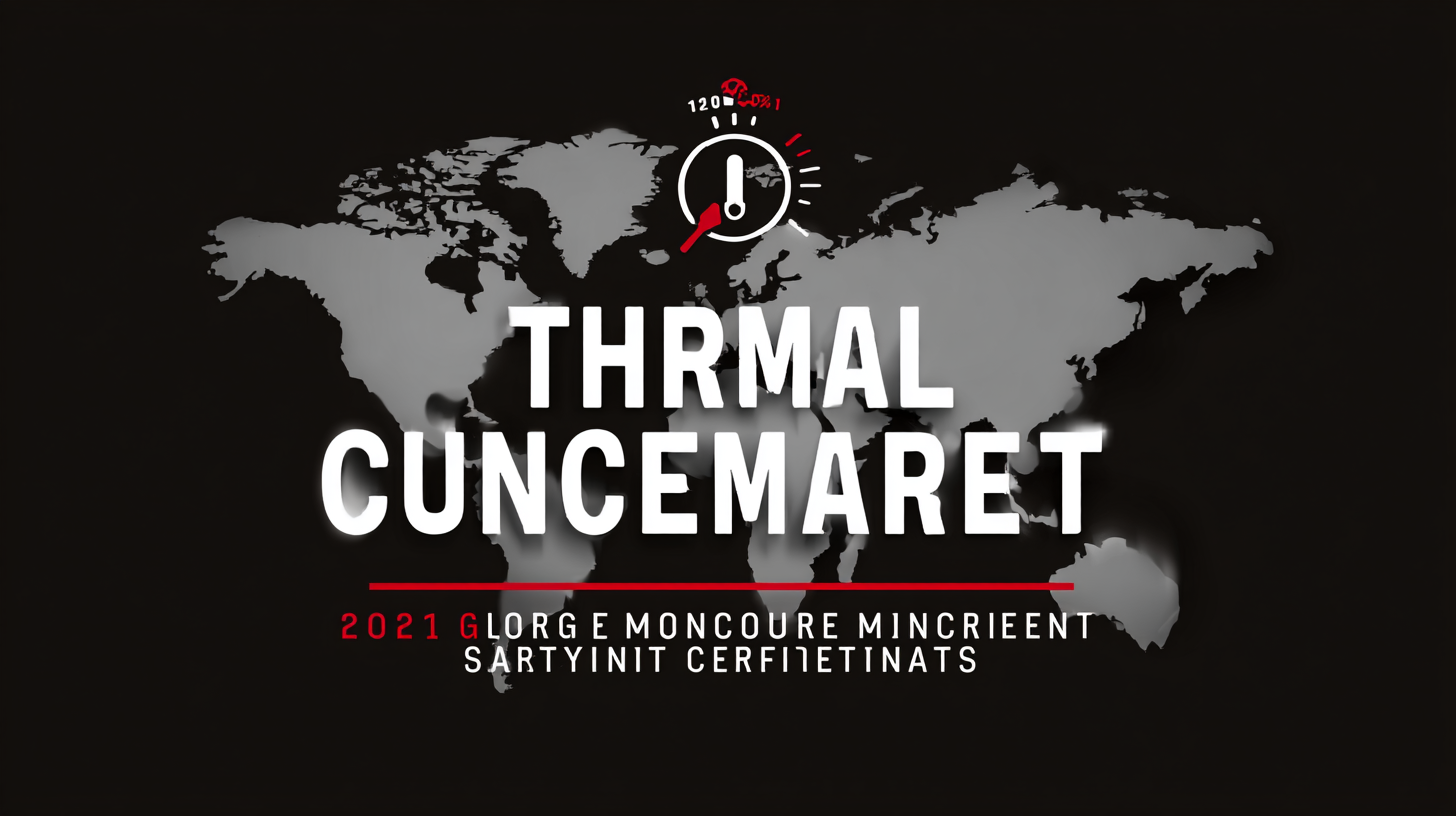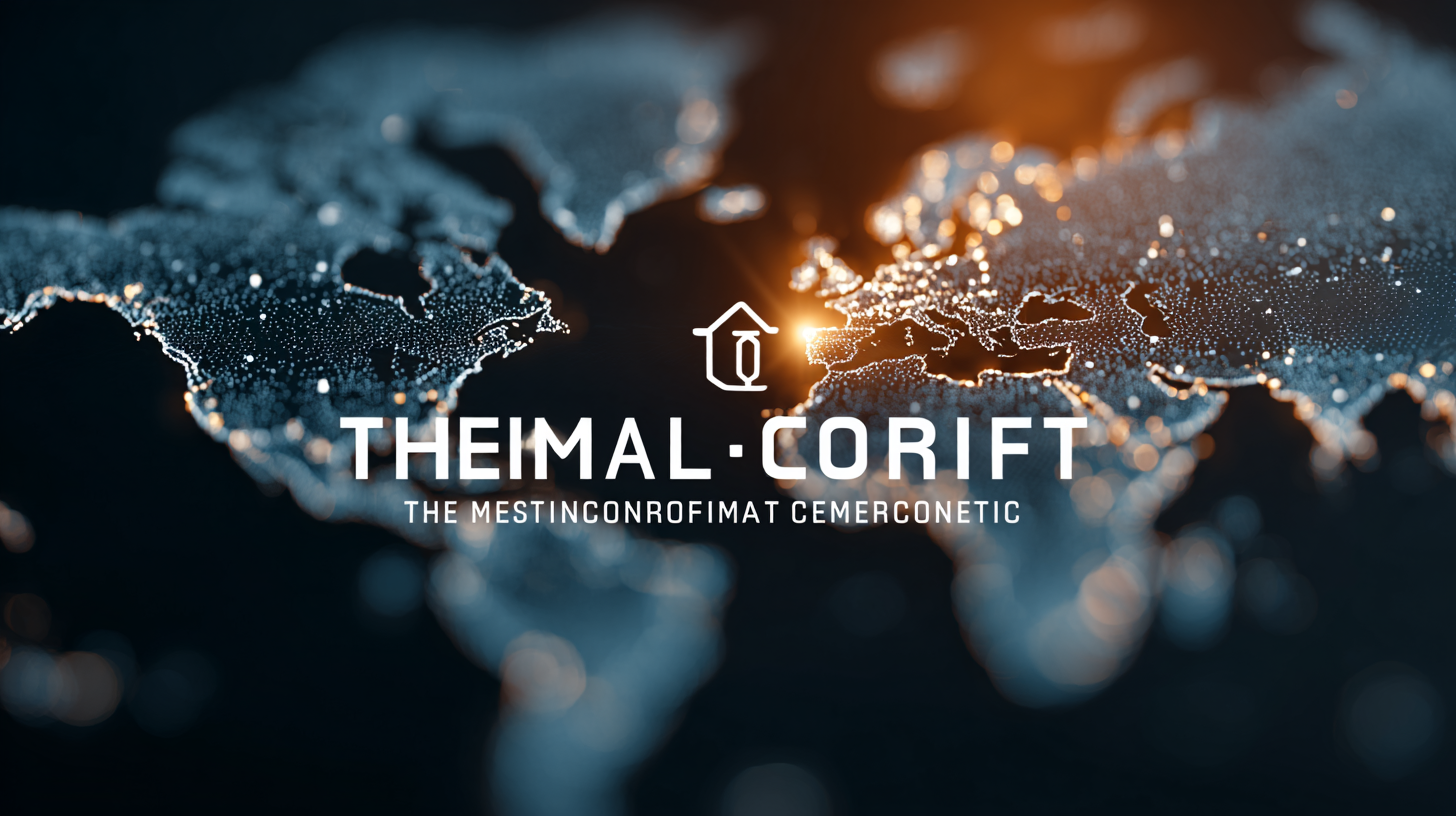
-
Home
-
Product Center
-
Application
-
Support
-
JT Cloud
-
About Us
-
Contact Us
Leave Your Message

In today's rapidly evolving global trade landscape, the significance of Thermal Comfort & Microclimate Measurement has never been more pronounced. According to a report by the International Institute of Refrigeration, thermal comfort plays a pivotal role in enhancing productivity and well-being in both residential and commercial settings, where effective microclimate measurement ensures compliance with international quality standards. As the Chinese manufacturing sector continues to gain international respect through stringent quality assurance measures, understanding the certifications related to Thermal Comfort & Microclimate Measurement becomes essential for businesses aiming to unlock new markets. The World Health Organization has also highlighted that improper thermal conditions can lead to decreased efficiency, emphasizing the need for accurate measurement techniques.

Thus, delving into the best practices and insights of 2023 regarding these certifications will not only elevate product standards but also foster a competitive edge in the global arena.
Thermal comfort plays a pivotal role in global trade, influencing not only the productivity of workers but also the well-being of consumers. According to a report by the International Energy Agency (IEA), optimizing thermal conditions in commercial spaces can increase productivity by up to 15%. This statistic highlights the critical nature of thermal comfort across various industries, as companies strive to enhance work environments and boost employee morale. In the context of international trade, ensuring consistent thermal conditions can facilitate smoother operations, particularly in logistics and warehousing.
Moreover, the rise of e-commerce has spotlighted the importance of maintaining optimal microclimates in storage and transportation. Research from the Global Logistics and Supply Chain Strategies indicates that inappropriate thermal conditions can lead to a 20% increase in product spoilage, severely impacting profit margins. As businesses expand their reach globally, obtaining certifications in thermal comfort and microclimate measurement becomes essential not only for compliance but also for fostering trust and satisfaction among global partners and consumers alike. This focus on thermal conditions is set to continue shaping industry standards in 2023 and beyond, as organizations recognize its value in enhancing operational efficiency and customer experience.
In the ever-evolving landscape of global trade, ensuring optimal thermal comfort and accurate microclimate measurements has become pivotal for businesses aiming to enhance product quality and consumer satisfaction. Certifications in microclimate measurement not only assure compliance with international standards but also signify a commitment to excellence.
 Among the key certifications, ISO 7730 focuses on the evaluation of thermal comfort in indoor environments, providing essential guidelines for assessing human comfort conditions. This standard empowers manufacturers to create products that optimize user experience, ensuring that spaces are not only functional but also conducive to well-being.
Among the key certifications, ISO 7730 focuses on the evaluation of thermal comfort in indoor environments, providing essential guidelines for assessing human comfort conditions. This standard empowers manufacturers to create products that optimize user experience, ensuring that spaces are not only functional but also conducive to well-being.
Another crucial certification is ASHRAE 55, which establishes the criteria for thermal environmental conditions within buildings. This certification is particularly valuable for architects and engineers, guiding them in designing spaces that maintain optimal thermal comfort for occupants. Implementing these standards can lead to significant improvements in indoor air quality and energy efficiency, ultimately resulting in higher customer satisfaction and loyalty.
As global trade continues to thrive in 2023, committing to these microclimate measurement certifications will be a key strategy for businesses aiming to elevate their product offerings and competitive edge in the market.
The automotive industry is witnessing a significant shift in consumer preferences towards enhanced thermal comfort, which is increasingly influencing market trends. The Automotive HVAC System Market is expected to reach an impressive USD 34.81 billion by 2032, driven by rising demand for passenger comfort and advanced climate control technologies. As vehicle owners prioritize a comfortable driving experience, innovations in HVAC systems are becoming a focal point for manufacturers aiming to maintain competitive advantage in this rapidly evolving market.
Moreover, the Automotive Seating Thermal Comfort System Market is projected to grow steadily from 2025 to 2034, with a growing emphasis on materials and technologies that enhance occupant comfort. As consumer awareness of thermal comfort standards increases, manufacturers are likely to incorporate more intelligent systems that adjust to varying microclimates within the vehicle's cabin. This trend is further supported by developments in related industries, such as the flexible polyurethane foam market, which is anticipated to grow from USD 5.95 billion in 2024 to over USD 10.86 billion by 2034. This synergy illustrates how the pursuit of optimal thermal comfort is reshaping consumer preferences and pushing automotive innovations to new heights.

In 2023, navigating compliance for thermal comfort products is more crucial than ever, given the evolving landscape of certifications. As markets expand globally, manufacturers are increasingly required to adhere to stringent standards pertaining to thermal comfort and microclimate measurements. These certifications not only ensure product safety and effectiveness but also enhance consumer confidence in compliance with international regulations.
Recent developments in various sectors highlight the importance of such certifications. For instance, advancements in digital modeling now allow companies to navigate complex compliance requirements efficiently. This shift emphasizes the trend towards more innovative compliance mechanisms across industries. Additionally, the scrutiny surrounding environmental responsibilities underscores the need for clear regulations, particularly regarding substances that have long-term impacts. As manufacturers and developers align their products with recognized certifications, they must remain vigilant about regulatory changes that can directly affect their market presence and sustainability efforts. This proactive approach positions them favorably in an increasingly competitive landscape, paving the way for success in global trade.
| Certification Name | Issuing Organization | Description | Applicable Products | Region of Validity |
|---|---|---|---|---|
| ISO 7730 | International Organization for Standardization | Standard for determining thermal comfort in indoor environments. | HVAC systems, Building materials | Global |
| ASHRAE 55 | American Society of Heating, Refrigerating, and Air-Conditioning Engineers | Standard for acceptable thermal conditions in indoor spaces. | Indoor climate controls, Building automation systems | North America |
| EN 15251 | European Committee for Standardization | Standard for indoor environmental criteria. | Ventilation systems, Indoor climate products | Europe |
| LEED | U.S. Green Building Council | Certification for green building design and construction. | Building materials, HVAC systems | Global |
| BREEAM | Building Research Establishment | Assessment method for master planning projects and new buildings. | Construction materials, Renewable energy systems | Primarily Europe |
Microclimate assessments play a pivotal role in enhancing supply chain efficiency by providing critical data that informs decision-making across various sectors. Research from the Global Supply Chain Institute highlights that organizations can reduce transportation costs by up to 15% when they integrate microclimate data into their logistics planning. This data-driven approach enables companies to optimize storage conditions and streamline product handling, ultimately leading to improved product quality and reduced spoilage rates.
Furthermore, certifications that validate thermal comfort and microclimate measurement can significantly boost a company's competitive advantage. According to the International Institute of Refrigeration, businesses that adopt certified microclimate assessment standards typically experience a 20% increase in customer satisfaction. This improvement is attributed to better environmental conditions tailored to product requirements, ensuring that goods are delivered in optimal states. As industries confront challenges such as climate variability and shifting consumer preferences, leveraging insights from microclimate assessments will be essential for maintaining operational resilience and enhancing overall supply chain performance.